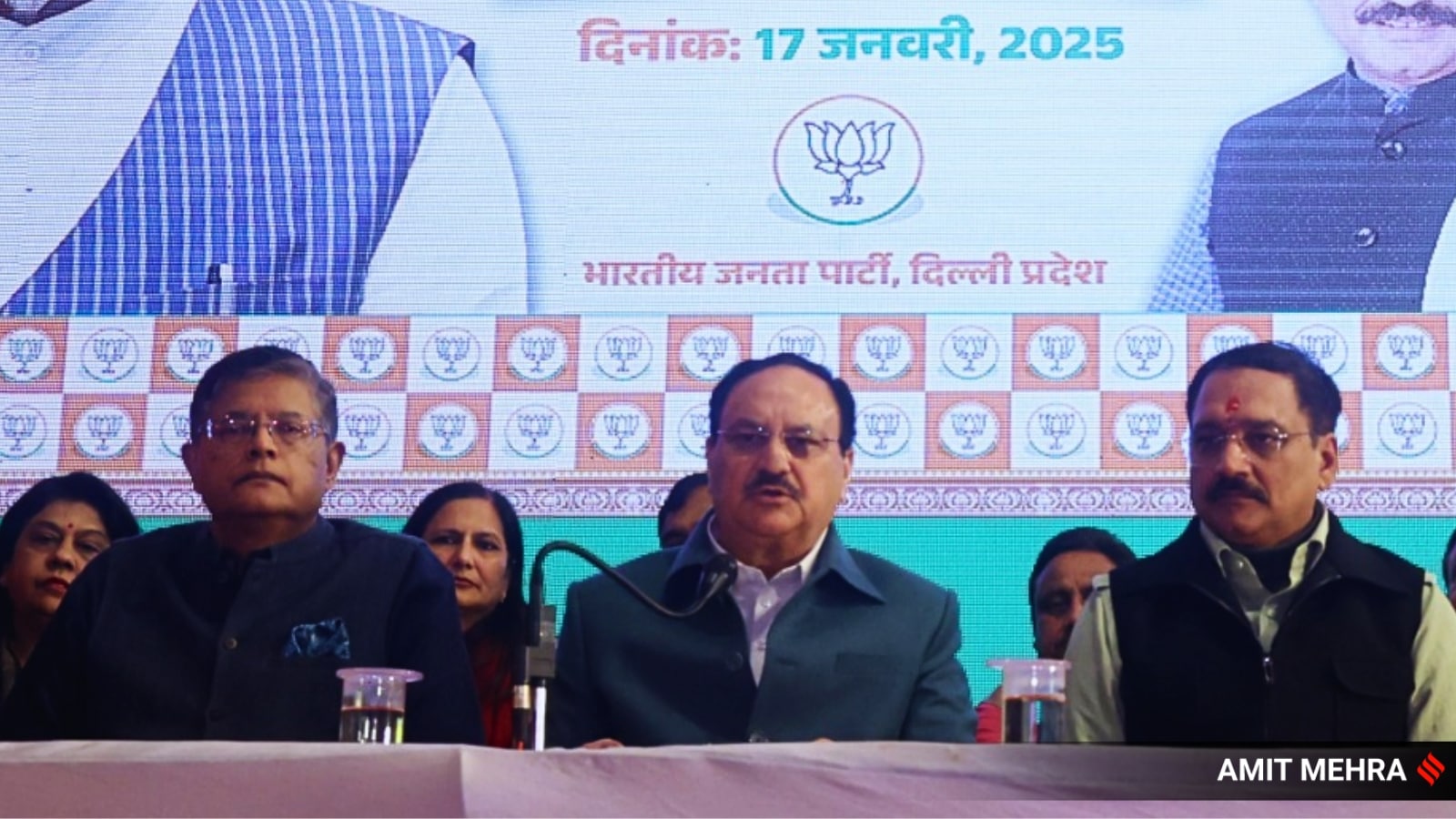 |
|
The Bharatiya Janata Party (BJP) has released its manifesto for the upcoming Delhi elections, outlining a range of welfare schemes aimed at securing votes. A key promise is a monthly payment of Rs 2,500 to eligible women, mirroring similar initiatives in BJP-governed states like Maharashtra and Madhya Pradesh. This move directly targets women voters and aims to improve their financial standing. The manifesto also promises significant increases in pensions for senior citizens, raising the amount from Rs 2,000 to Rs 2,500, and further increasing it to Rs 3,000 for those above 70, widows, and destitute women. This pledge resonates with a large segment of the population, addressing concerns about the financial security of older citizens and vulnerable women. Furthermore, the BJP intends to establish ‘Atal canteens’ providing affordable nutritious meals for just Rs 5, targeting the city's impoverished population and tackling food insecurity.
The introduction of these welfare measures is not without its critics. Aam Aadmi Party (AAP) convenor Arvind Kejriwal has vehemently criticized the BJP's manifesto, accusing them of plagiarizing his party's initiatives. Kejriwal claims that the BJP's promises are merely copies of the AAP's 'guarantees' and demands an apology from Prime Minister Narendra Modi for previously condemning such schemes as 'revadis' (freebies). This clash underscores the intense political rivalry between the two parties and highlights the central role of welfare promises in the electoral campaign. The BJP, however, defends its proposals by emphasizing its commitment to fulfilling promises and improving upon existing schemes. They claim their plans would be more effectively implemented compared to the AAP government, highlighting concerns about corruption and ineffective governance under the current regime.
The BJP’s manifesto extends beyond direct cash transfers and pension increases. It includes plans to expand access to the Ayushman Bharat healthcare scheme, providing coverage to 51 lakh people currently excluded. An additional Rs 5 lakh insurance cover is also pledged. This focus on healthcare speaks to widespread concerns about the accessibility and affordability of healthcare in Delhi. The party’s commitment to eradicating corruption within the Delhi administration, a recurring theme throughout the manifesto, is aimed at contrasting itself with the AAP's perceived shortcomings. The BJP claims to have collected feedback from approximately 1.8 lakh people through extensive consultation, legitimizing its proposed schemes and emphasizing their basis in public demand. The manifesto's release marks the first phase of the BJP's campaign promises, suggesting more announcements are to come. The aggressive nature of the party's campaign, including sharp criticism against the AAP and bold proposals for welfare expansion, indicates a strong push for electoral victory.
The political implications of this manifesto are significant. The BJP is clearly targeting specific demographic segments with its welfare pledges, attempting to erode the AAP's support base. The accusation of plagiarism from the AAP adds another layer of intensity to the ongoing political battle in Delhi. The effectiveness of these promises in swaying public opinion remains to be seen, but the extensive outreach undertaken by the BJP suggests a concerted effort to engage directly with potential voters and understand their concerns. The coming weeks will reveal how effective this strategic approach will be in influencing the outcome of the Delhi elections. The debate surrounding ‘revadis’ and the ethical implications of large-scale welfare schemes adds a deeper philosophical dimension to the campaign. This highlights a broader national conversation about the role of government in addressing economic inequality and the most effective means of doing so.
Source: BJP releases manifesto: Rs 2,500 for women, more pension for senior citizens, meals for Rs 5
